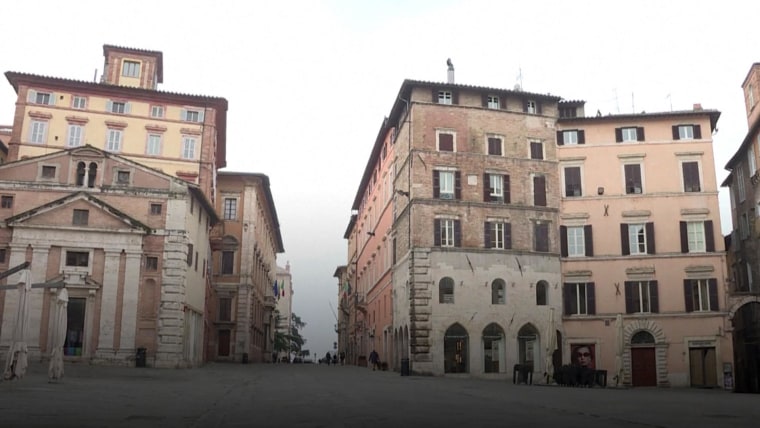MILAN, Italy — Normally packed tourist sites, shops and restaurants stood deserted across Italy on Thursday, a day after authorities drastically tightened a nationwide lockdown in a bid to curb the spread of the coronavirus.
Milan, the country’s financial capital, was a ghost town as residents woke up to an order to close all shops except supermarkets, food stores and pharmacies. In a city center normally bustling with shoppers, a handful of people mingled at a street market that had just one stand open.
In the university area of the city, almost all shops were closed and people, most wearing masks, lined up to get into a drug store.
Inside, pharmacist Andrea De Leo, 26, said they were running out of masks but were expecting a new delivery at the end of the week.
Despite the most severe restrictions since World War II, De Leo said that the city would persevere.
Let our news meet your inbox. The news and stories that matters, delivered weekday mornings.
“We are getting used to this,” he said. “We will resist.”
Italian Prime Minister Giuseppe Conte unveiled the heightened restrictions on Wednesday night. The country of 60 million is the worst-hit in Europe by the coronavirus.
The new measures left Rome, the capital, eerily quiet on Thursday, with its iconic streets almost empty and restaurants shut for business. The city’s Spanish Steps stood empty Thursday morning, with only a few passers-by at the plaza below.
“The situation started to feel a lot more tense,” Natalie Kennedy, a travel blogger from San Diego who lives in Rome, told NBC News. “People are starting to limit their travel outside of their homes. We’re staying home a lot more.”
But residents are still allowed to walk around and even go to work if necessary, albeit the government is urging a limit to most activity with police telling people to stand at least 3 feet apart to maintain the “social distancing” necessary to help stop the spread of the virus.
Violators could face fines, even a few months in jail.
But Massimo Improta, director of the general prevention and public rescue office of the Rome Police, said they have not imprisoned anyone yet, because the majority of people have been complying with the rules.
Despite the tough tactics, the virus is still spreading. Italy has nearly 12,500 cases of coronavirus, second most after China where the virus is believed to have originated, and 827 deaths.
On Wednesday night, President Donald Trump imposed sweeping restrictions to prevent people from 26 European countries, including Italy, from traveling to the United States for a month.
The epidemic was changing people’s habits, said Francesco Corti, 49, in Florence.
“It’s pretty funny because you know Italians love to stay very close to each other, but it’s not happening these days,” software product manager said.
“Everyone is trying to change their way of life to solve this problem,” he added.
Matt Bradley and Bill O’Reilly reported from Rome, Michele Novaga from Milan and Yuliya Talmazan and Caroline Radnofsky from London.
Caroline Radnofsky contributed.














